Please select root levels for the menu
NZ Plants
Unusual Mosses
Some mosses remain juvenile
The protonamal (juvenile) phase of one moss, Ephemeropsis, persists to become the reproductive adult form. Lacking stems and leaves, this moss is easily mistaken for a filamentous alga (especially the alga Trentepohlia). One species is found in New Zealand and Tasmania (Ephemeropsis trentepohlioides) and the only other species is found in the tropics (E. tjibodensis).
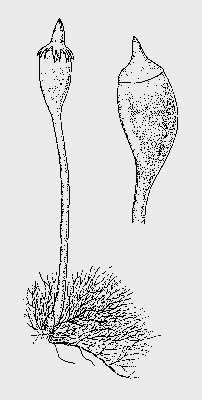
Ephemeropsis trentepohlioides - Drawing of the filamentous adult and attached sporophyte with capsule
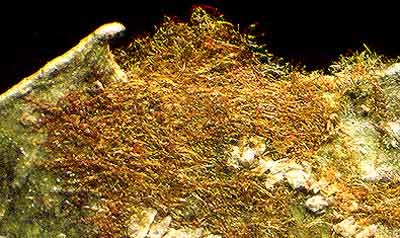
Ephemeropsis trentepohlioides - A fine mat composed of branching filaments growing on the surface of a leaf.
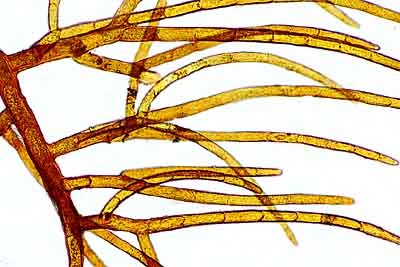
Ephemeropsis trentepohlioide - A portion of the mature growth form.
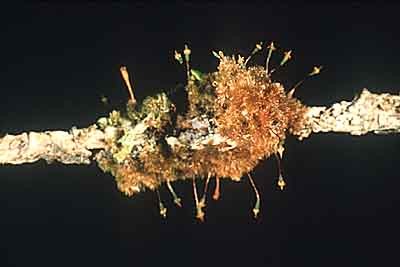
Ephemeropsis trentepohlioides - A branch with a growth of Ephemeropsis plants bearing numerous sporophytes with capsules -
Some mosses like dung or carrion
The "dung mosses" all thrive on dung or carrion. They possess the following unusual characteristics:
- capsules that release compounds with a dung or carrion smell
- small spores that readily stick to insects attracted by the smell
- protonemata and shoots that tolerate concentrated dung liquids which kill spores of competing mosses
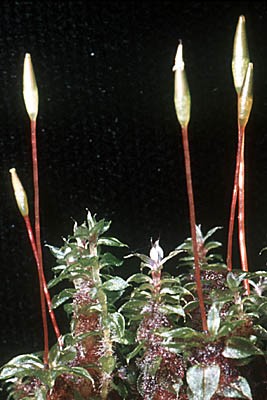
Tayloria callophylla - plants with attached sporophytes. Found mainly on the North Island.
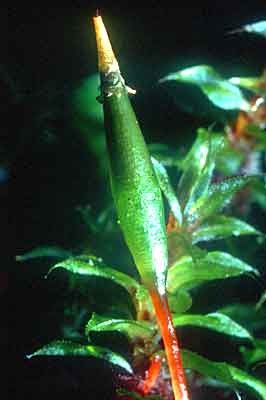
Tayloria callophylla - immature capsule with covering (calyptera) at the very tip.
